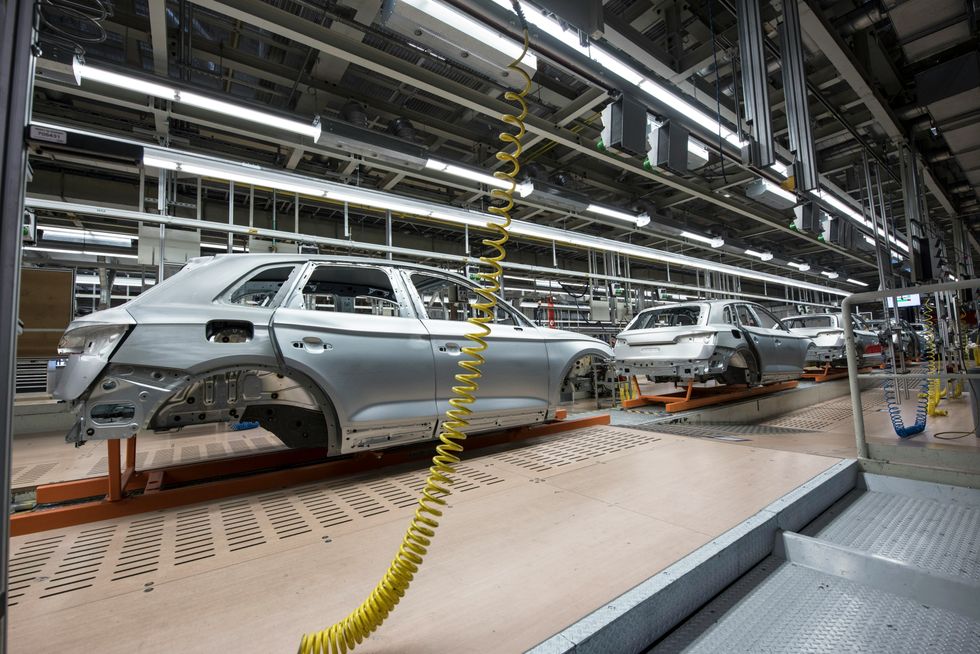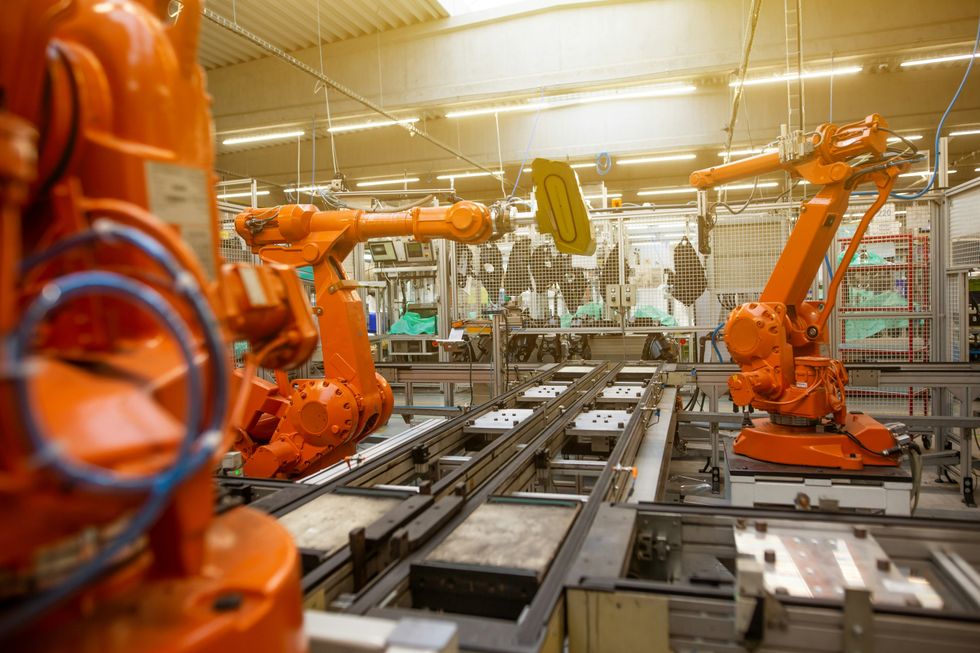'The UK Government's aim to halt new petrol and diesel car sales by 2035 influences plans'
Don't Miss
Most Read
Trending on GB News
A major hydrogen breakthrough has been made which could massively ramp up the development of fuel cell-based vehicles.
In a "milestone" announcement, Bramble Energy said it had completed aims to accelerate the transition to an electrified automotive industry.
Almost two years ago, the company was given £1.8million to develop an optimised fuel cell stack assembly with the capacity to produce up to 2,000 50kW stacks per year, which it has now achieved.
These stacks could be used in future vehicles to help accelerate the switch to cleaner forms of transport, including hydrogen fuel cell vehicles.
Do you have a story you'd like to share? Get in touch by emailingmotoring@gbnews.uk

Experts have predicted that fuel cell development could help accelerate hydrogen vehicle production
BRAMBLE ENERGY
Bramble Energy said it had also proved that it could increase the development of the stacks for a low cost.
Dr Tom Mason, CEO of Bramble Energy, said the firm was committed to a net zero future in transportation, boosted by hydrogen vehicles.
He added: “The UK Government's aim to halt new petrol and diesel car sales by 2035 influences Bramble Energy's plans. However, it's just part of a larger vision.
"Our focus extends beyond this goal as we work towards creating real-world, commercially viable solutions for the wider transportation sector.
"A key milestone in this journey is HEIDI (Hydrogen Electric Integrated Drivetrain Initiative), our hydrogen-powered double-deck bus demonstrator.”
The HEIDI project includes a partnership with Equipmake, Aeristech, and the University of Bath, and has already designed technology for new hydrogen double-decker buses.
The scheme is supported by a £6.3million grant from the Advanced Propulsion Centre's Scale-up Readiness Validation (SuRV) programme, and matched by industry contributions worth £12.7million.
Since 2008, the cost of automotive fuel cells has seen a significant drop in price of 70 per cent, helping spur development and making them cheaper for major brands.
It is estimated that there are around 300 vehicles powered by hydrogen fuel cells on UK roads, including passenger cars, vans, trucks and buses.
Many major vehicle brands are looking at hydrogen fuel cell technology to work alongside the development of electric vehicles to accelerate the switch to net zero.
Julian Hetherington, APC’s Automotive Transformation Director, added: “The successful completion of this APC Scale-up Readiness Validation (SuRV) project by Bramble Energy reinforces confidence in large-scale manufacturing investment to build electrified supply chains in the UK.
"Our aim is to support innovative businesses like Bramble Energy that have the expertise to accelerate change in the automotive sector as it transitions to a net zero future.
LATEST DEVELOPMENTS:

Since 2008, the cost of automotive fuel cells has dropped by 70 per cent
BRAMBLE ENERGY
"By advancing fuel cell technology, it brings a viable net zero transport solution which can scale quickly and be delivered at lower cost.”









